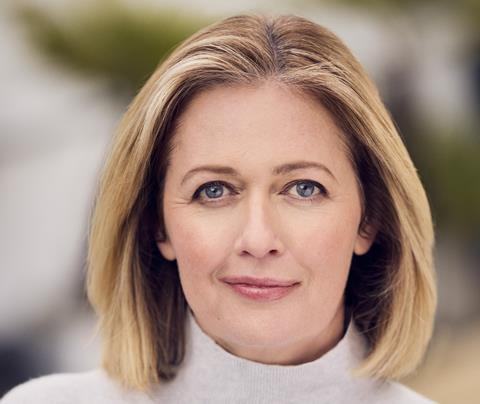Paula Warwick, head of distribution at Avalon, on adjusting to fewer shows in the market and backing talent
With buyers flocking to London TV Screenings and Mip London this week, Broadcast International speaks to Paula Warwick, head of distribution at Avalon, about adapting to unpredictably and working with buyers who have tighter requirements.
Describe the state of the distribution sector in a few sentences.
The market remains turbulent and unpredictable, but that also brings opportunities. While sources of traditional funding continue to be difficult to access, and it’s taking longer to get projects off the ground, there is always demand for a quality project.
Broadcasters and streamers still want great shows that cut through and connect with audiences, scripted and unscripted – as ever it’s just about believing in what you are selling and finding the right buyer at the right time and being prepared to think outside the box commercially.
What is the biggest challenge for the global distribution industry in 2025?
New shows! Commissioning budgets have been cut, and the volume of new shows has decreased. Naturally, that means there’s less for distributors to take to market. However, there are opportunities to put projects together in more creative ways, and if distributors proactively embrace their role in that they stand a better chance of succeeding than waiting for finished tape to land on their desk.
What is the biggest opportunity for the global distribution industry in 2025?

It’s not surprising that in an uncertain market with reduced volume buyers are turning to proven talent (on and off screen) and recognised IP to maximise their chances of success. So the opportunity for distributors is to align with talent and IP, but without undue focus on what’s proven or recognisable at the expense of quality.
This has been our core business for decades and we are committed to partnering with and backing distinctly talented creators, both emerging and established, to bring exceptional projects to market around the world. We’re confident that if we continue to do that, and embrace the fact that buyers are looking for more creative ways to make deals, we’ll continue to find success.
How have discussions with buyers (both commissioners and acquisitions execs) changed in the last 12 months?
Discussions with buyers are increasingly focussed on talent and IP. And in general we’re finding that many buyers are narrowing their briefs and have a clearer sense of what they’re looking for than they have in the past. This is no bad thing as it helps us focus our conversations. Moreover, buyers are more open to different kinds of deal structures in this market. They are more flexible on rights, and this is leading to better commercial alignment where everyone participates in the success of a show.
Where is growth going to come for your business in 2025 and beyond?
We believe that there is and will continue to be massive demand for uniquely compelling content, and we are well positioned to deliver on this given our alignment with exceptional talent and IP. We also benefit from being a global independent, allowing us to move fast, produce efficiently, and maximise opportunities in a global marketplace.
How important are global streamers to scripted coproductions and how do you expect their changing positions regarding rights will affect your pipeline?
Global streamers play a key role in funding scripted co-productions and have been very important to us since we launched Catastrophe with Channel 4 and Amazon Prime Video ten years ago. As streamer priorities and rights positions evolve, we see these opportunities only growing, so our focus is on continuing to strengthen and build on the fantastic partnerships we already have with streamers and local broadcasters.
Dialling into distribution at London TV Screenings
- 1
- 2
- 3
- 4
- 5
- 6
- 7
- 8
- 9
- 10
- 11
- 12
- 13
- 14
- 15
- 16
- 17
- 18
- 19
- 20
- 21
- 22
 Currently reading
Currently readingDistribution in Focus: Avalon’s Paula Warwick
- 23
- 24






























No comments yet